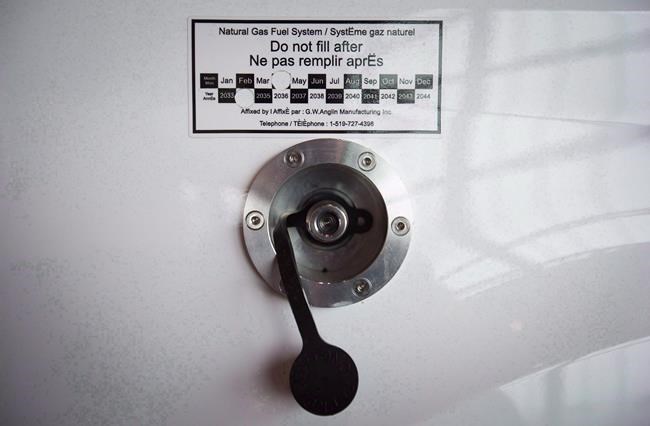CALGARY — A liquefied natural gas project being proposed in a northern B.C. First Nation could soon produce millions of tons of the resource per year.
A Calgary-based group of LNG companies called Rockies LNG and Texas-based Western LNG say the project in the Nisga'a Nation could have an economic impact of $55 billion over the next 30 years.
The group filed a project description notice with the B.C. and federal governments as part of the first phase of the project, with ongoing stakeholder consultation expected.
The project, called Ksi Lisims LNG after the Nisga'a name for the Nass River, is being touted as a low-cost source of LNG, which will also serve to economically support the First Nation.
Two gas pipeline projects have received regulatory approval and are being evaluated for the site.
"Attracting an economic base to the Nass Valley has long been a priority for the Nisga'a Nation," said Nisga'a Nation President Eva Clayton.
"This is why, for close to a decade, our Nation has worked to attract a world-leading LNG project to our treaty lands, and why we are proud to commence the formal regulatory process for our project, Ksi Lisims LNG."
The group anticipates commercial operation will start in late 2027 or 2028, and the facility will be designed to produce up to 12 million tonnes of LNG per year and receive approximately 1.7 to 2.0 billion cubic feet of natural gas per day.
Rockies LNG say LNG has a relatively low carbon impact, and the use of LNG from the Ksi Lisims would reduce emissions by more than 45 million tonnes per year, or 1.3 gigatonnes over a 30-year period when compared with using the same amount oil or coal.
"Ksi Lisims LNG will provide Canadian natural gas producers with new access to growing global energy markets, and importantly, global LNG prices," said Charlotte Raggett, president and CEO of Rockies LNG.
"We look forward to working with the Nisga'a Nation, other First Nations, governments and stakeholders as we advance Ksi Lisims LNG."
This report by The Canadian Press was first published July 19, 2021.
Salmaan Farooqui, The Canadian Press




